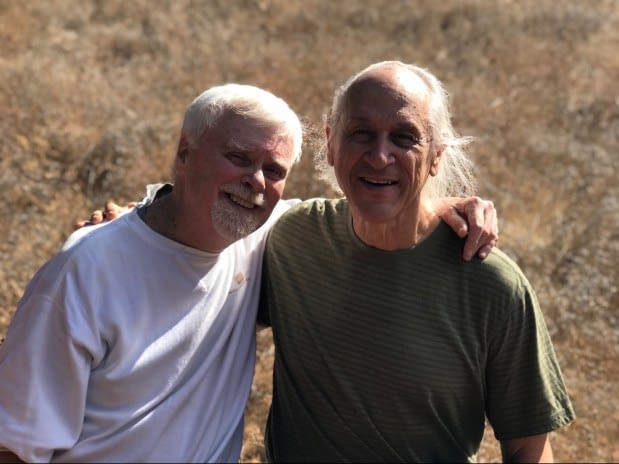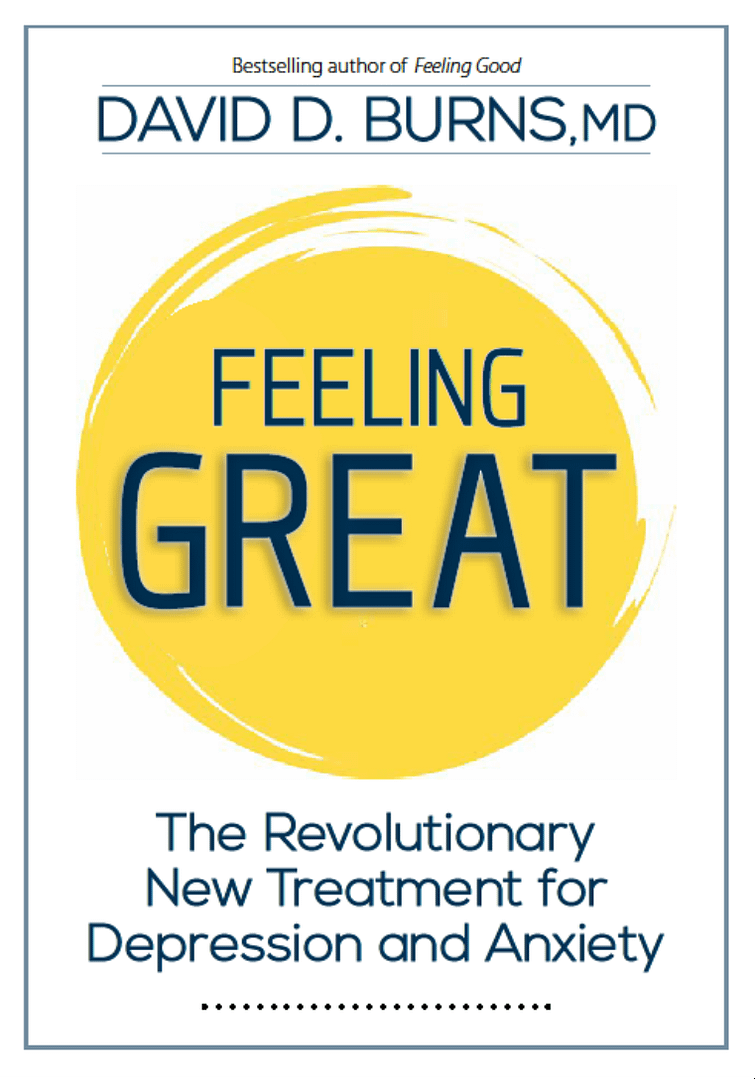today’s featured photo features Mark and David on a Sunday hike.
Professor Mark Noble Shares his Thinking on the Uptick in Loneliness.
Rhonda starts today’s podcast with a beautiful podcast endorsement from Eduardo, a fan who loved our recent podcast 303, featuring the dramatic, humble, and inspiring Jason Meno, a data scientist and software engineer who is making superb contributions to the Feeling Good App. Eduardo was especially interested in how to bring non-verbal, difficult-to-access negative thoughts to conscious awareness with the Stick Figure Technique.
Today we interview Professor Mark Noble on the topic of loneliness. Mark is best known for his pioneering research on stem cells, but he has become an active and beloved member of the TEAM-CBT community since joining one of my Sunday hikes back in (date?)
Mark is currently an active member and small group leader in Rhonda’s Wednesday TEAM training group. He generously wrote brilliant chapter for my most recent book, Feeling Great, and has also written the Brain Users Guide to TEAM CBT which you can download for free from https://www.feelinggreattherapycenter.com/resources
Mark begins by dedicating today’s podcast to listeners who may be struggling with feelings of loneliness, and explains that loneliness appears to be on the increase, along with virtually all types of negative feelings, especially since the onset of the pandemic.
He emphasizes that there are many roads to loneliness, including:
-
Loss of a loved one, including friends, family, colleagues, or even a beloved pet
-
Betrayal by someone you trusted
-
Being trapped in an abusive relationship
-
Being abandoned or neglected as a child
-
Not being accepted by your family due to sexual orientation, religious preference, choice of life partner, or other factors
-
Feelings of isolation due to COVID
-
A dead marriage
-
Infidelity
-
And more.
Of course, Social anxiety is one of the most common causes of loneliness, and last week we interviewed two individual, Cai Chen, MD, and Chan Mary Soeur, RN, BSN, who have fallen in love. Both were lonely and struggled for years with social anxiety. Their work with TEAM-CBT has not only helped them greatly with their anxiety and loneliness, but has brought them intense romantic love!
Not bad!
People struggling with loneliness often think there’s something “wrong” with them. For example, you may feel unlovable, and fear that you’ll be alone forever. In addition, the belief that we “need” love to feel happy and fulfilled often leaves the lonely individual feeling like they’re doomed to endless unhappiness and a lack of fulfillment if they’re alone. Mark explains that the scientific definition of loneliness is the distress you feel when you think that your ”needs” for connection and relationships differ from what you have.
In addition, he believes that loneliness is not abnormal, but is rather an indication of healthy brain function that has been important to the survival of the human race. For example, feelings of loneliness motivate us to connect with others. In fact, feelings of loneliness prompt babies to cry for their mothers when they feel hungry, hurt, or alone, and this process begins within seconds of being born.
We raised the question of whether the cure for loneliness is internal or external. The internal solution involves changing the way you think, and your relationship with yourself. The external solution involves trying to find a loving partner or becoming more involved in activities with others. Although this is the solution most people pursue, it often falls short.
David emphasizes the important of the internal solution, and discovering that you can feel completely happy and fulfilled when you’re alone. In fact, this is the first step in overcoming loneliness that he emphasizes in his book, Intimate Connections.
Mark, Rhonda and David also discuss some of the paradoxes of TEAM-CBT, and how the “need” for love often drives others away, since you are asking people to give you something you can only give yourself. In contrast, when you feel happy within, and no longer “need” the love of others, love will often pursue you.
We hope you enjoyed today’s podcast, and want to thank our buddy, Professor Noble, who has made so many in our TEAM-CBT community feel less lonely and more connected!
Warmly,
Mark, Rhonda, and David
Dr. Rhonda Barovsky is a Level 5 Certified TEAM-CBT therapist and trainer and specializes in the treatment of trauma, anxiety, depression, and relationship problems. Check out her website: www.feelinggreattherapycenter.com.
You can reach Dr. Burns at david@feelinggood.com.
This is the cover of my new book, Feeling Great.
It’s on sale right now on Amazon, and it’s ridiculously cheap!
The kindle and audio versions are available now too! Check it out!



